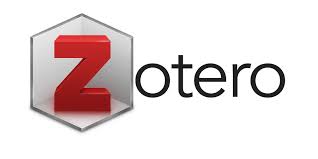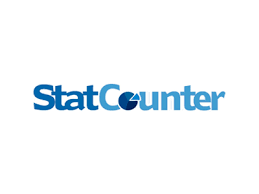Pendidikan Berkualitas untuk Mewujudkan Sustainable Development Goals (SDGs) Melalui Pembelajaran Matematika: Systematic Literature Review
DOI:
https://doi.org/10.29240/ja.v6i1.9118Keywords:
math, education, SDGsAbstract
The SDGs are a solution to the problems of education in Indonesia through the goal of quality education. The existence of quality education, especially in mathematics learning, is expected to help achieve other SDGs goals. This makes researchers examine more deeply related to the form, implementation, and influence of mathematics learning on SDGs. This research uses the SLR rule. From the search, 991 articles from Google Scholar and 972 articles from Crossref published in 2013-2023 were found and then rigorously selected and produced 20 relevant articles that could show the results of the forms of mathematics learning models that support SDGs, namely Quantum Learning, Team Assisted Individualization, and Project-based Learning and forms of learning media Math-Poly, Mathematics Smart Module, Holo-Math, virtual reality media, and Dodo. One of the implementations of the learning model, namely Quantum Learning, is learning that invites students to get used to learning in a comfortable and pleasant atmosphere, making students' concept understanding skills increase. The influence of mathematics learning on SDGs is that mathematics has an important role in helping humans in the modern era as now.
Downloads
References
Arifin, A. (2013). Implementasi Pendidikan Multikulutral dalam Praksis Pendidikan di Indonesia. Jurnal Pembangunan Pendidikan: Fondasi dan Aplikasi, 1. https://doi.org/10.21831/jppfa.v1i1.1052
Calderón, A., & Ruiz, M. (2015). A systematic literature review on serious games evaluation: An application to software project management. Computers and Education, 87, 396–422. https://doi.org/10.1016/j.compedu.2015.07.011
Fahmi, C. N., Nasruddin, N., & Permana, F. A. (2021a). Pendidikan Karakter dalam Proses Pembelajaran Matematika Di Kelas XI Man Model Banda Aceh. Jurnal Dedikasi Pendidikan, 5(1), 51–60. http://103.52.61.43/index.php/dedikasi/article/view/1585/798
Fahmi, C. N., Nasruddin, N., & Permana, F. A. (2021b). Pendidikan Karakter dalam Proses Pembelajaran Matematika di Kelas XI MAN Model Banda Aceh. Jurnal Dedikasi Pendidikan.
Ghoyatul Muna, S. (2019). Mathcpolly (Matemathic Culture Monopolly): Mediapembelajaran Etnomatematika yang Terintegrasisosialisasi Sikap Pro Environment Berbasis Augmented Reality. Jurnal Pendidikan Matematika (Kudus), 2(2), 123–136. https://doi.org/10.21043/jpm.v2i2.6359
Hamdu, G., Suryani, L., & Prana, A. M. (2021). Tingkat Kesulitan Soal Tes Berpikir Sistem pada Implementasi Pembelajaran Education for Sustainable Development di Sekolah. Prosiding Seminar Nasional MIPATI. https://www.stkipbjm.ac.id/mathdidactic/index.php/mipati/article/view/1538
Hernita, H. (2023). Upaya inovasi Pembelajaran Matematika dengan Menggunakan Teknologi Augmented Reality untuk Mencapai Sustainable Development Goals (SDGs). Seminar Nasional LPPM Ummat. http://journal.ummat.ac.id/index.php/semnaslppm/article/view/14493
Indah Hafizhah, Ikhwan Aldi Wardana, & Dede Indra Setiabudi. (2022). Efektivitas Penggunaan Model Pembelajaran Quantum Learning dalam Upaya Meningkatkan Kemampuan Psikomotorik pada Pelajaran Matematika. Jurnal Riset Sosial Humaniora dan Pendidikan, 1(1), 11–21. https://doi.org/10.56444/soshumdik.v1i1.69
Karima, R., Geby, L., Octavia, V., & Fahmi, K. (2023). Lunturnya Moralitas Pelajar Indonesia ? Literaksi : Jurnal Manajemen Pendidikan, 01(02), 17–20.
Kartini. (2020). Pendidikan Berkelanjutan (Continuing Education) dalam Bidang Vokasi. Peran LPTK dalam Pengembangan Pendidikan Vokasi di Indonesia.
Khatimah, H., Utami, R. D., & Sari, I. N. (2016). Dodo (Domino Ludo); Sarana Pendidikan Karakter Berbasis Pembelajaran Tematik pada Diri Anak-Anak Sekolah Dasar di Era Sustainable Develompment Goals 3(2), 557–567). https://journal.unismuh.ac.id/index.php/pena/article/download/1007/pdf
Kitchenham, B., & Brereton, P. (2013). A systematic review of systematic review process research in software engineering. Information and Software Technology, 55(12), 2049–2075. https://doi.org/10.1016/j.infsof.2013.07.010
Kusumadewi, R. F., Uge, S., & ... (2022). Mathematics Smart Module, Digitalisasi Media Pembelajaran Matematika Sekolah Dasar Di Era Society 5.0. … Sultan Agung IV, 222(November). https://jurnal.unissula.ac.id/index.php/sendiksa/article/view/31321%0Ahttps://jurnal.unissula.ac.id/index.php/sendiksa/article/download/31321/8407
Latifah, L. (2018). Integrasi ESD dalam Pembelajaran PBL Untuk Meningkatkan Penguasaan Konsep Peserta didik SMP. 1–26.
Lukman, A., Hairi, A. P., Rahmi, A., Fadli, A., Balqis, S., & ... (2020). Penerapan media pembelajaran Holo-Math (Hologram Mathematics) dalam meningkatkan kemampuan visual matematis siswa di SMP Negeri 8 Percut Sei …. Jurnal …. https://www.academia.edu/download/87506922/14706.pdf
Manurung, F. O., & Pujiastuti, H. (2022a). Studi Kasus SDGs 4.4. 1: Kemampuan ICT Mahasiswa Pendidikan Matematika dalam Mendesain Perangkat Pembelajaran 21st CLD. Media Pendidikan Matematika.
Manurung, F. O., & Pujiastuti, H. (2022b). Studi Kasus SDGs 4.4.1: Kemampuan ICT Mahasiswa Pendidikan Matematika dalam Mendesain Perangkat Pembelajaran 21st CLD. Media Pendidikan Matematika, 10(1), 109. https://doi.org/10.33394/mpm.v10i1.5038
Mufarikhah, I. A., Amir, M. F., Zakiyah, U., & Yahya, A. Z. (2018). Desain Pembelajaran Literasi Matematika Melalui Model Permainan Benteng Takesi (Terampil, Kreatif dan Imajinatif). Knpmp Iii, 2012, 189–197.
Naba, D. A. O. (2020). Penerapan Model Pembelajaran Kooperatif Tipe Team Assissted Individualization (TAI) sebagai Upaya Meningkatkan Prestas Belajar Matematika. Jurnal Penelitian dan Pengembangan Pendidikan, 4(1), 142. https://doi.org/10.23887/jppp.v4i1.25209
Nikmah, I. L., Juandi, D., & Prabawanto, S. (2019). Students’ difficulties on solving mathematical problem based on ESD objectives. Journal of Physics: Conference Series, 1157(3). https://doi.org/10.1088/1742-6596/1157/3/032116
Nofriyandi, N., Andrian, D., Effendi, L. A., Firdaus, F., Ariawan, R., Qudsi, R., Wahyuni, R., Sthephani, A., & Indriani, M. (2021). Peningkatan Kemampuan Desain Media Pembelajaran Matematika Berbasis Education For Sustainable Development Guru. Community Education Engagement Journal, 2(2), 21–26. https://doi.org/10.25299/ceej.v2i2.6682
Nugraha, A. (2019). Pentingnya Pendidikan Berkelanjutan di Era Revolusi Indutri 4.0. Majalah Ilmiah Pelita Ilmu, 2(1), 26–37. https://doi.org/10.37849/mipi.v2i1.118
OECD. (2023). PISA 2022 Released Main Survey New Mathematics Items. June, 53.
Primasti, S. G. (2021). Implementasi Program Education for Sustainable Develompment di SMA Tumbuh. Spektrum Analisis Kebijakan Pendidikan, 10(3). https://doi.org/10.21831/sakp.v10i3.17465
Purwanto, R. (2021). Problematika Kualitas Pendidikan di Indonesia. Jurnal Pendidikan dan Teknologi Indonesia, 1(4), 151–160. https://doi.org/10.52436/1.jpti.26
Putra, J. D., Suardi, D., & Juandi, D. (2021). Peningkatan Kemampuan Pemahaman Konsep Matematis Siswa Melalui Pembelajaran Kooperatif Berbasis Education for Sustainable Development. Pythagoras: Jurnal Program Studi Pendidikan Matematika, 10(2), 122–129. https://doi.org/10.33373/pythagoras.v10i2.3130
Putra, J. D., Suryadi, D., & Juandi, D. (2022). Integration of Principles of Education for Sustainable Development in Mathematics Learning to Improve Student’s Mathematical Problem Solving Ability. IndoMath: Indonesia.
Rahayu, S., Fathonah, N., & Ladyawati, E. (2018). Pengembangan Buku Intisari Matematika Jenjang Sekolah Dasar Ditinjau dari Aspek Kelayakan Isi, Penyajian, Bahasa, dan Kegrafikan. Buana Matematika : Jurnal Ilmiah Matematika dan Pendidikan Matematika, 7(2), 99–108. https://doi.org/10.36456/buana_matematika.7.2:.1430.99-108
Safitri, A. O., Yunianti, V. D., & Rostika, D. (2022). Upaya Peningkatan Pendidikan Berkualitas di Indonesia: Analisis Pencapaian Sustainable Development Goals (SDGs). Jurnal Basicedu, 6(4), 7096–7106. https://doi.org/10.31004/basicedu.v6i4.3296
Sugiarni, R., Inayah, S., Azmy, D. S., Purwita, N., & Ridwansah, R. (2022). Pendampingan Lesson Plan Kalaboratif Menggunakan Media Virtual Reality di SD Negeri 3 Cimacan. Jurnal Abdi Nusa, 2(2), 35–42. https://doi.org/10.52005/abdinusa.v2i2.94
Sugiarni, R., Sarah Inayah, Dara Septia Azmy, Nisa Purwita K.G, & Rizal Ridwansah. (2022). Pendampingan Lesson Plan Kalaboratif Menggunakan Media Virtual Reality di SD Negeri 3 Cimacan. Jurnal Abdi Nusa, 2(2), 35–42. https://doi.org/10.52005/abdinusa.v2i2.94
Upu, H., Syam, R., Marwan, A. J., & Juhari, A. (2022). Pengembangan E-Modul Matematika Berbasis Aplikasi Android. 1600–1614.
Widodo, B. (2019). Tantangan dan Peluang Pendidikan Matematika di Era Masyarakat Ekonomi Asean (AEC). Konferensi Nasional Penelitian Matematika dan …. https://proceedings.ums.ac.id/index.php/knpmp/article/download/2123/2080
Wisarja, I. K., & Sudarsana, I. K. (2017). Refleksi Kritis Ideologi Pendidikan Konservatisme dan Libralisme Menuju Paradigma Baru Pendidikan. Journal of Education Research and Evaluation, 1(4), 283. https://doi.org/10.23887/jere.v1i4.11925
Yuniarti, Y. S., Hasan, R., & Ali, M. (2019). Competencies of Education for Sustainable Development Related to Mathematics Education in Senior High School. Journal of Physics: Conference Series, 1179(1). https://doi.org/10.1088/1742-6596/1179/1/012075
Zainal, N. (2022). Problem Based Learning pada Pembelajaran Matematika di Sekolah Dasar/ Madrasah Ibtidaiyah. Jurnal basicedu, 6(3), 3584–3593. https://jbasic.org/index.php/basicedu/article/view/2650
Zukha, L. N., Abidin, Z., & Alifiani. (2019). Penerapan Model Quantum Learning untuk Meningkatkan Pemahaman Konsep Matematika Integral Kelas XI SMA Negeri 7 Malang Tahun Pelajaran 2015/2016. JP3, Jurnal Penelitian, Pendidkan, dan Pembelajaran, 14(7), 8–14. https://jim.unisma.ac.id/index.php/jp3/article/view/3774
Downloads
Published
Issue
Section
Citation Check
License
Copyright (c) 2024 Alya Yusrul Hana, Halimatus Sa'diyah, Zulia Khikmatun Nahar, Dina Fakhriyana

This work is licensed under a Creative Commons Attribution-NonCommercial-ShareAlike 4.0 International License.
Authors who publish with ARITHMETIC: Academic Journal of Math agree to the following terms:
- Authors retain copyright and grant the journal right of first publication with the work simultaneously licensed under a Creative Commons Attribution-NonCommercial-ShareAlike 4.0 International License (CC BY-NC-SA 4.0) that allows others to share the work with an acknowledgment of the work's authorship and initial publication in this journal.
- Authors are able to enter into separate, additional contractual arrangements for the non-exclusive distribution of the journal's published version of the work (e.g., post it to an institutional repository or publish it in a book), with an acknowledgment of its initial publication in this journal.
- Authors are permitted and encouraged to post their work online (e.g., in institutional repositories or on their website) prior to and during the submission process, as it can lead to productive exchanges, as well as earlier and greater citation of published work (See The Effect of Open Access).







